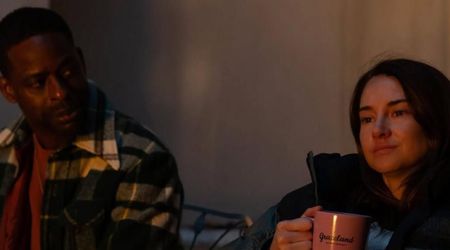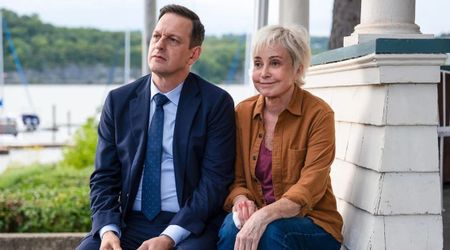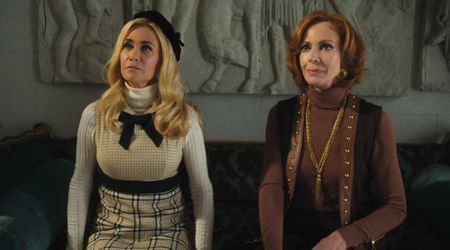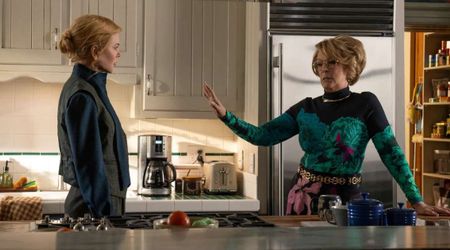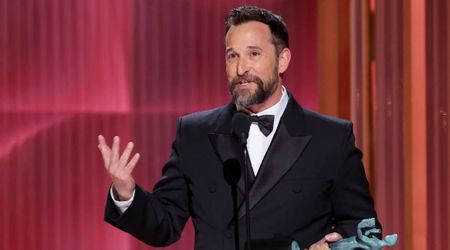‘The Trial of the Chicago 7’ Ending Explained: Tom Hayden captivates court, but did it really end like that?

It’s 1968 and the United States is in turmoil. Martin Luther King Jr is gunned down by an assassin in Memphis, Robert F Kennedy is shot and killed in Los Angeles. The Vietnam War is at its height with over 30,000 American casualties and 1,000 more US troops killed each month. In August, scores of antiwar protesters gathered outside the Democratic National Convention in Chicago and are teargassed and beaten by police and the National Guard.
The following year, eight activists — Tom Hayden (Eddie Redmayne) and Rennie Davis of the Students for a Democratic Society, counter-culture Yippies Abbie Hoffman (Sacha Baron Cohen) and Jerry Rubin (Jeremy Strong), MOBE organizers David Dellinger (John Carroll Lynch), John Froines (Daniel Flaherty), and Lee Weiner (Noah Robbins), and Black Panther Party Chairman Bobby Seale (Yahya Abdul-Mateen II) — are put on trial for conspiring to incite a riot outside the Democratic Convention. Noted civil rights attorney William Kunstler (Mark Rylance) works to defend this odd lot of antiwar activists against charges brought by a new Republican administration aiming to stifle and silence the movement.
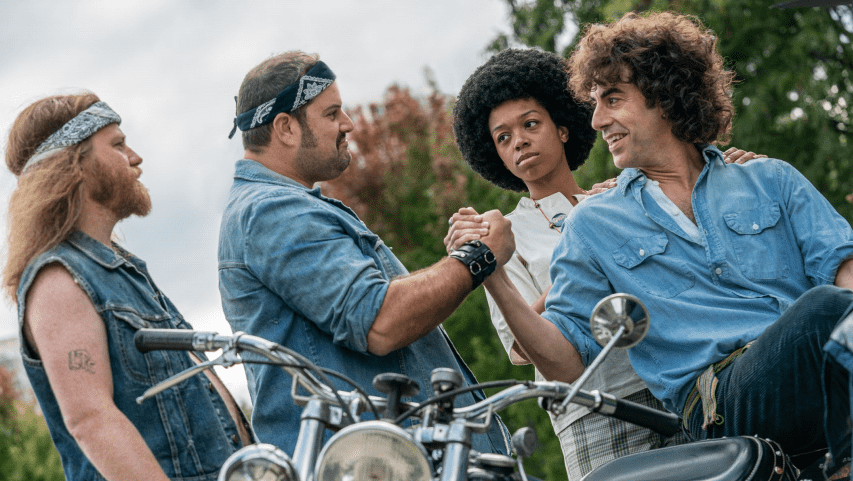
The whole world watches as the defendants face an unjust judge in one of the most bizarre and momentous trials in American history. Chronicling the events of the past, ‘The Trial of the Chicago 7’ churns out an inspiring tale.
Stupefying and astounding as it may be, the film ends on a fictionalized note after the Chicago Eight become Chicago Seven after Bobby Seale's trial is severed. As the two-hour 10-minute movie comes to a close, the judge allows one defendant to speak on the behalf of the seven-man group — Tom Hayden. “Mr Hayden,” judge Hoffman tells him. “In spite of your actions during the convention, you are the one defendant who has shown, during this trial, respect for this court and for this country, and remorse for those actions. I truly believe... and I mean this. I truly believe that one day you will be a very productive part of our system. I'd like you to make your statement brief and without political content of any kind.”
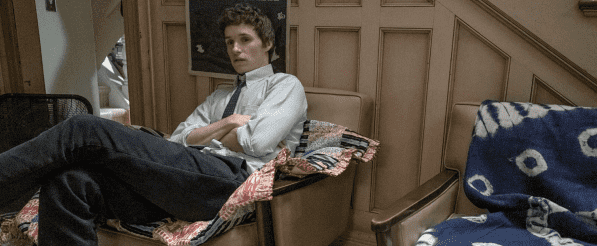
He then propounds, “If you make your statement brief, if you make it respectful, if you make it remorseful and to the point, I will look favorably upon that when administering my sentence. Do you understand what I've just said?” In a muffled tone, Hayden then replies, “You'll look favorably in sentencing. If I make my sentence respectful and remorseful. I'm sorry, Your Honor, what was the third one?” The judge then responds, “Brief.”
Appearing to be in accord, he pauses for a minute and then begins, “Your Honor, since this trial began, 4,752 US troops have been killed in Vietnam. And the following... are their names.” A long list of the names of the fallen follow. Making a mockery of the judge's offer, Hayden does the exact opposite of what he is told to — to keep his statement “brief.” In a winning moment for the Chicago Seven, the spectators stand up in respect and a thunderous sound of claps echoes in the room. What a move!
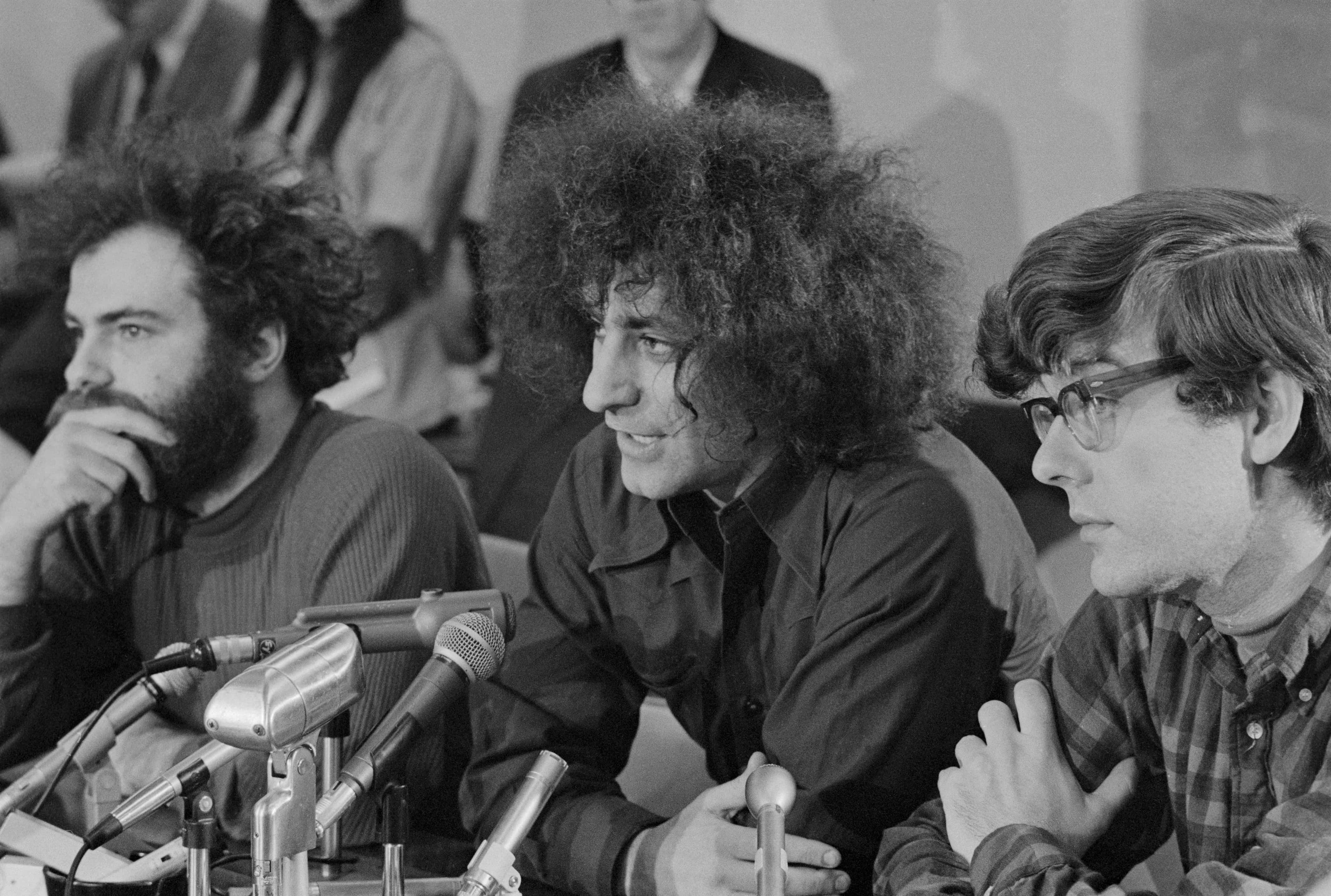
As significant and hair-raising the moment may seem, it's not how things wrapped up in court during the real trial. Steal a glance at what really happened at the end and read the statements of all the group members of Chicago Seven:
On February 20, 1970, the judge announced: “I now proceed with the imposition of sentence.” When lawyer William Kunstler intervened, “Your Honor, we were not informed on Wednesday that sentence would occur today,” the judge snapped at him: “There is no obligation of a Court to notify you of every step it takes.”
“The defendants had no way of knowing they are going to be sentenced today. Their families are not even present, which would seem to me in common decency would be permitted,” Kunstler argued. Judge Hoffman said, “The reason they were kept out is my life was threatened by one of the members of the family. I was told they would dance on my grave in one of the hearings here within the last week.”
After another war of words, he then let the defendants speak for themselves when Kunstler remarked, “Your Honor, I think for all of the defendants, Mr Weinglass and I are going to make no statement. The defendants will speak for themselves.”
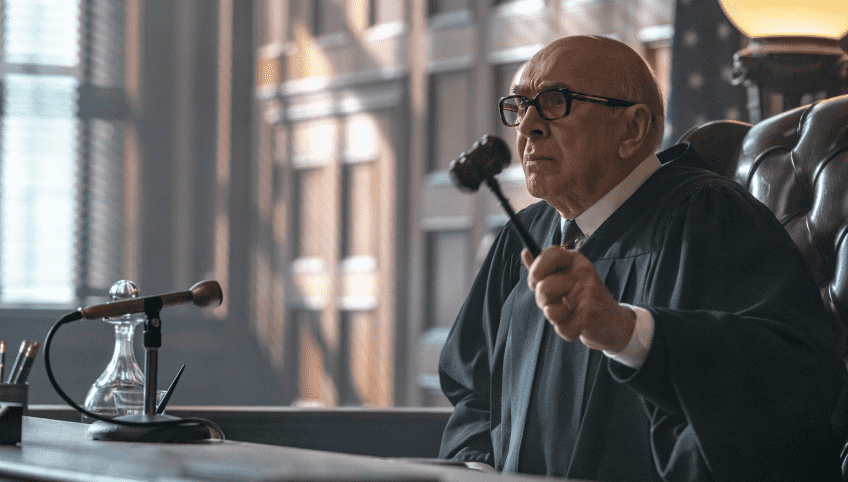
David Dellinger
“I would like to make four brief points. First, I think that every judge should be required to spend time in prison before sentencing other people there so that he might become aware of the degrading antihuman conditions that persist not only in Cook County Jail but in the prisons generally of this country. I feel more compassion for you, sir, than I do any hostility. ...
I wish we could work together. I wish we could reach out to the Forans and the Schultzes and the Hoffmans, and convince them of the necessity of this revolution. I think I shall sleep better and happier with a greater sense of fulfillment in whatever jails I am in for the next however many years than if I had compromised, if I had pretended the problems were any less real than they are, or if I had sat here passively in the courthouse while justice was being throttled and the truth was being denied...”
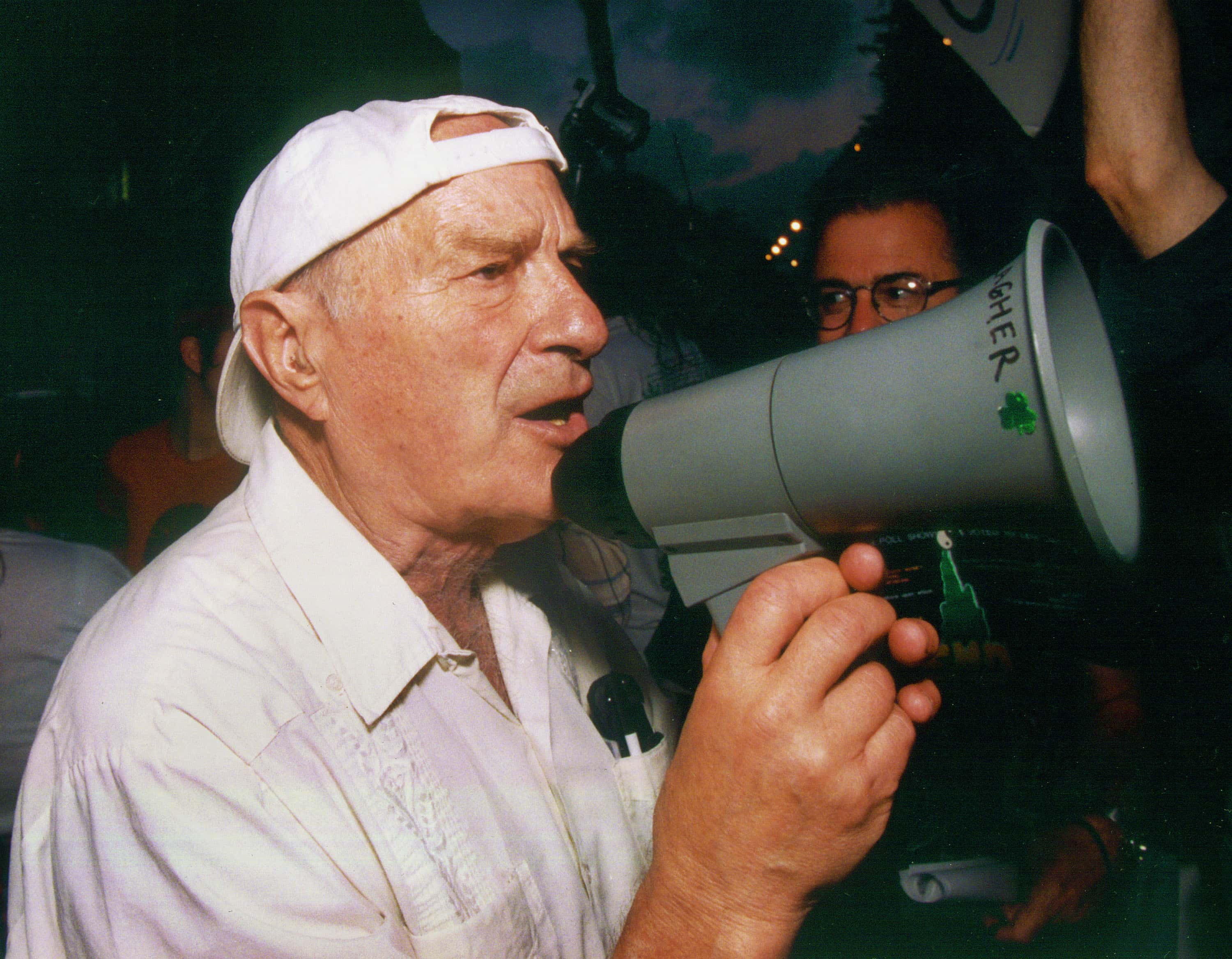
Rennie Davis
“It is not a time for words; it is a time that demands action. And since I did not get a jury of my peers, I look to the jury that is in the streets. My jury will be in the streets tomorrow all across the country and the verdict from my jury will keep coming for the next long five years that you are about to give me in prison.
When I come out of prison it will be to move next door to Tom Foran. I am going to be the boy next door to Tom Foran and the boy next door, the boy that could have been a judge, could have been a prosecutor, could have been a college professor, is going to move next door to organize his kids into the revolution. We are going to turn the sons and daughters of the ruling class in this country into Viet Cong.”
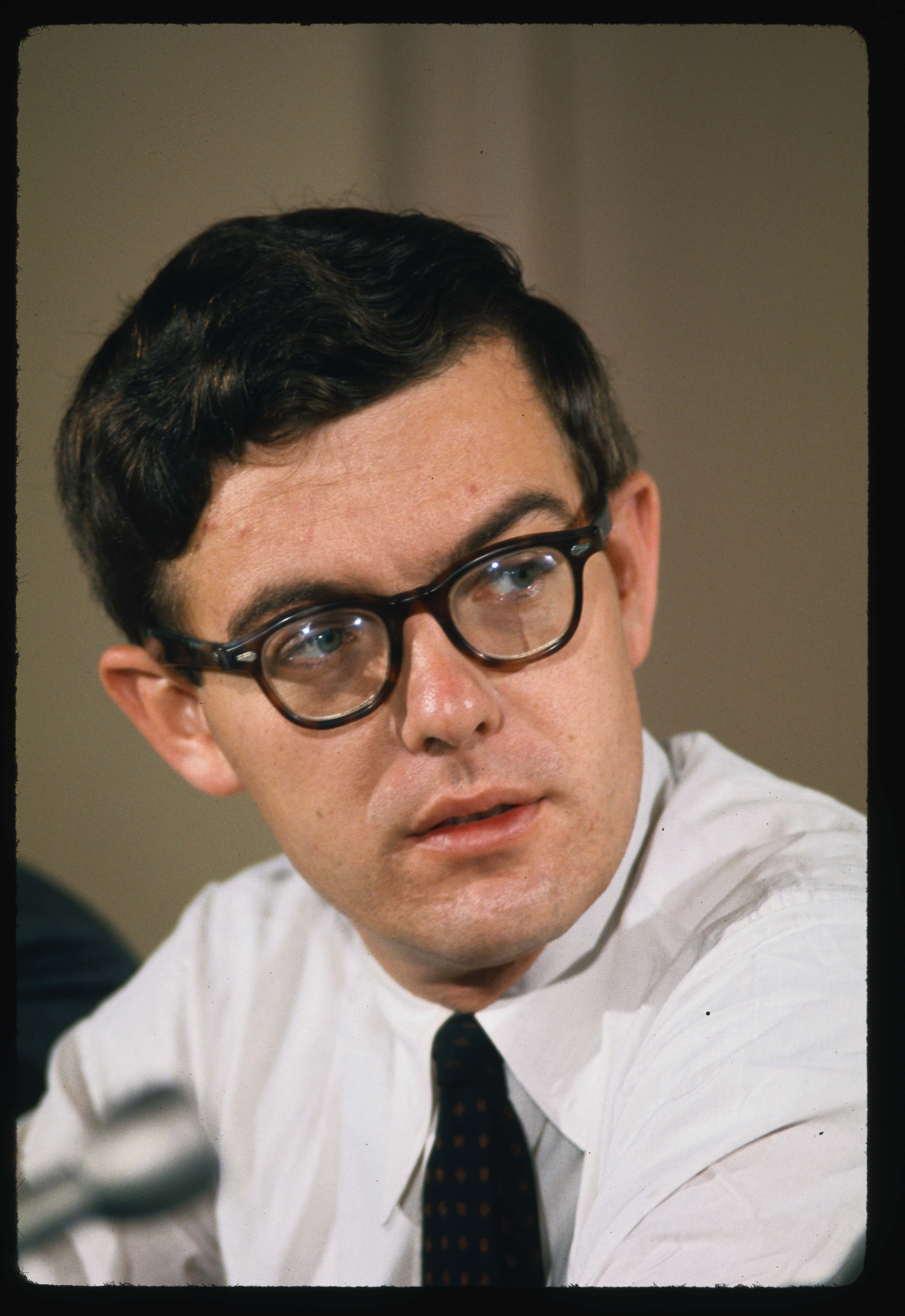
Tom Hayden
“I have very little that I want to say because I don't have very much respect for this kind of freedom of speech. This is the kind of freedom of speech that I think the Government now wants to restrict us to, freedom to speak in empty rooms in front of prosecutors, a few feet from your jail cell. ...
If you didn't want to make us martyrs, why did you do it? If you wanted to keep it cool, why didn't you give us a permit? You know if you had given us a permit, you know that by doing this to us it speeds up the end for the people who do it to us. And you know that if this prosecution had never been undertaken, it would have been better for those in power. It would have left them in power a little longer. You know that by doing this to us it speeds up the end for the people who do it to us. You don't believe it but we have to do this. We have no choice. We had no choice in Chicago. We had no choice in this trial. ... Someday they are going to proclaim that imperative from the bench and from the courthouse. It's only a matter of time. You can give us time. You are going to give us time. But it is only a matter of time.”
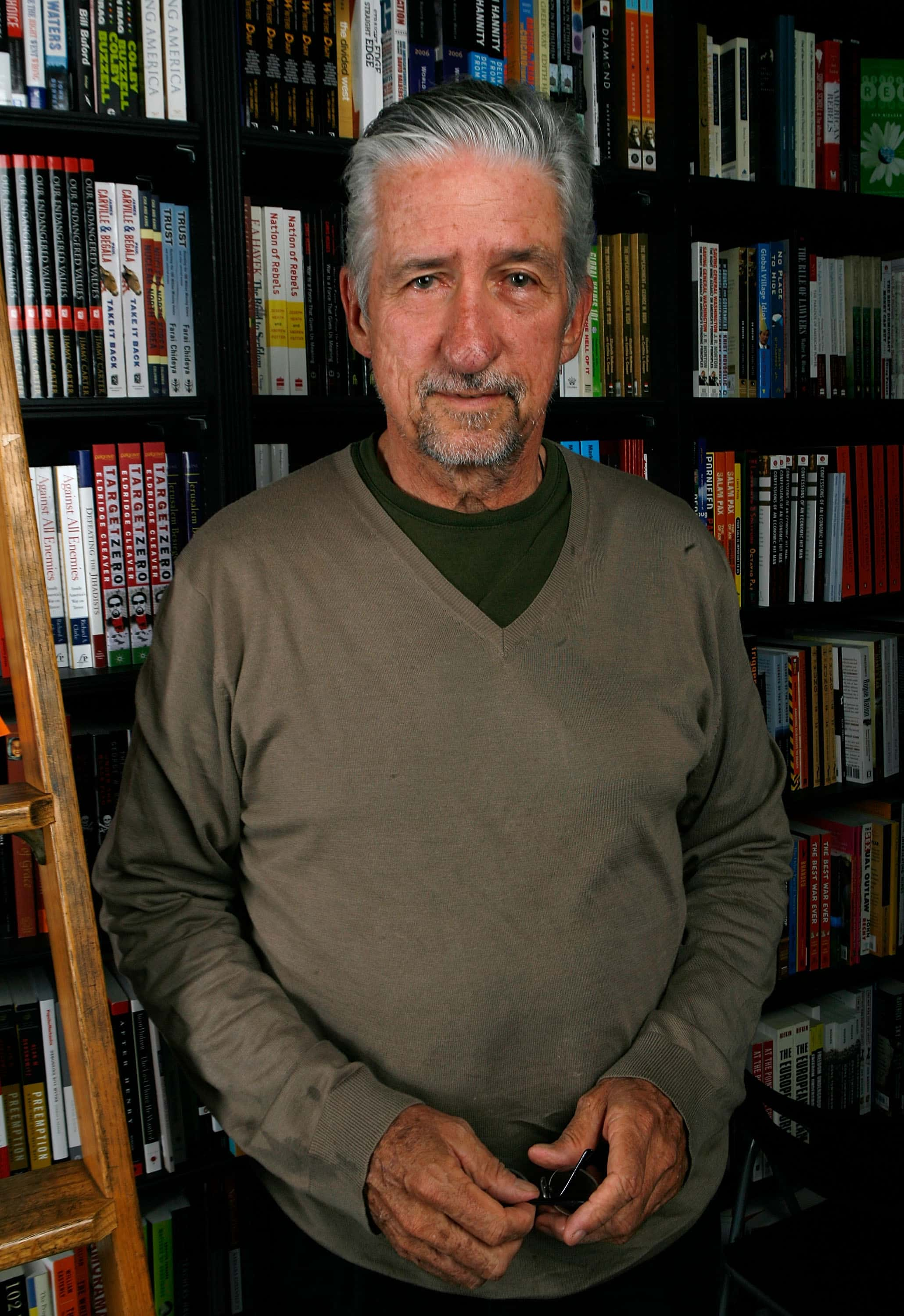
Abbie Hoffman
“I feel like I have spent fifteen years watching John Daly shows about history. You Are There. It is sort of like taking LSD, which I recommend to you, Judge. I know a good dealer in Florida. I could fix you up.
Mr. Foran says that we are evil men, and I suppose that is sort of a compliment. He says that we are unpatriotic? I don't know, that has kind of a jingoistic ring. I suppose I am not patriotic. But he says we are un-American. I don't feel un-American. I feel very American. I said it is not that the Yippies hate America. It is that they feel that the American Dream has been betrayed. That has been my attitude.
In 1861 Abraham Lincoln in his inaugural address said, and I quote "When the people shall grow weary of their constitutional right to amend the government, they shall exert their revolutionary right to dismember and overthrow that government." If Abraham Lincoln had given that speech in Lincoln Park, he would be on trial right here in this courtroom, because that is an inciteful speech. That is a speech intended to create a riot.
I don't even know what a riot is. I thought a riot was fun. Riot means you laugh, ha, ha. That is a riot. They call it a riot. I didn't want to be that serious. I was supposed to be funny. I tried to be, I mean, but it was sad last night. I am not made to be a martyr. I tried to sign up for a few years, but I went down there. They ran out of nails. What was I going to do? So I ended up being funny. It wasn't funny last night sitting in a prison cell, a 5 x 8 room, with no light in the room. I could have written a whole book last night. Nothing. No light in the room. Bedbugs all over. They bite. I haven't eaten in six days. I'm not on a hunger strike; you can call it that. It's just that the food stinks and I can't take it. ...”
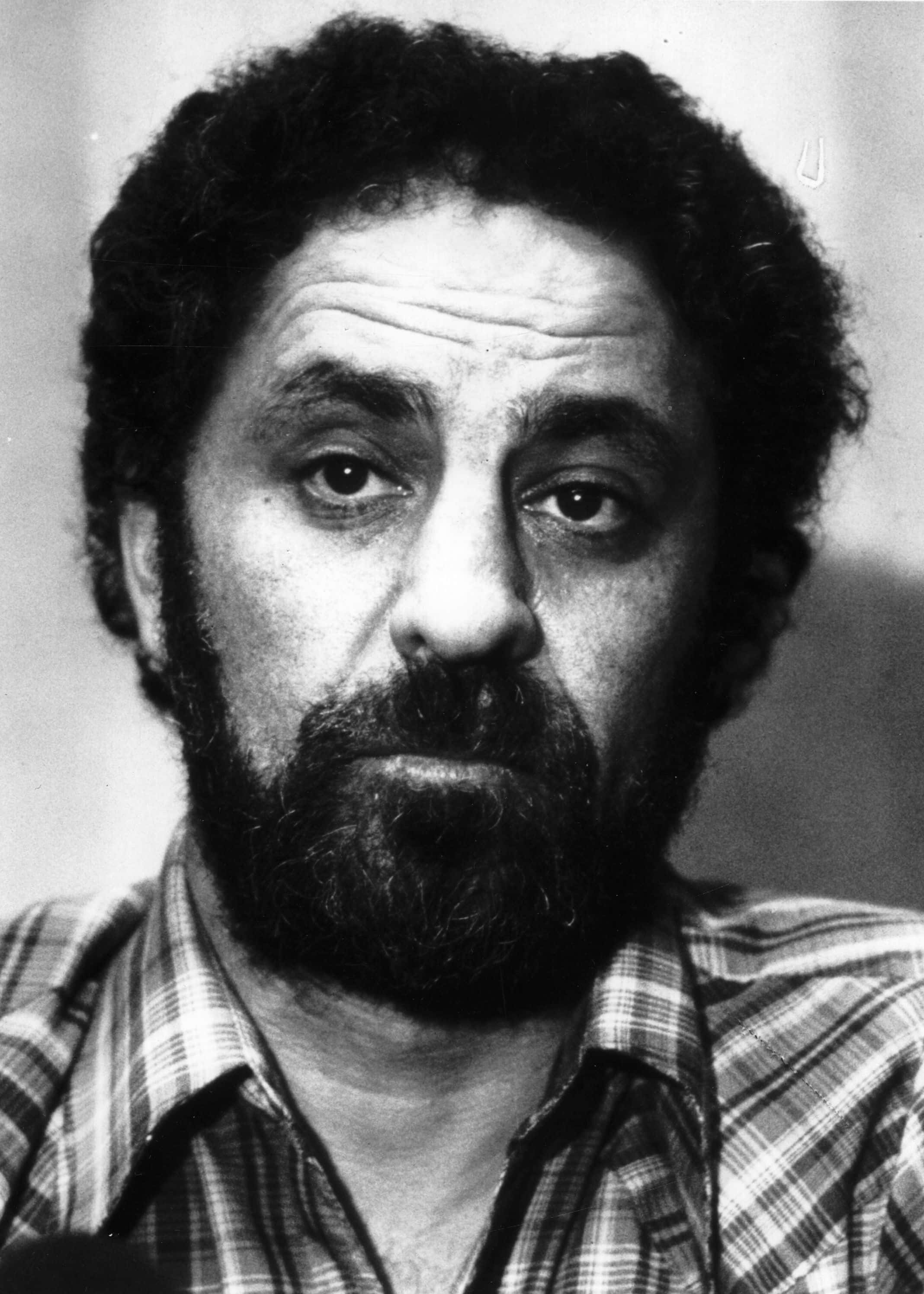
Jerry Rubin
“Well, five months are over. Look at the courtroom, fluorescent lighting. We sat for five months in swivel chairs. The press, the marshals, the judge, now it is over. This is one of the proudest moments of my life. This one of the happiest moments of my life, if you can dig what I mean. I am happy because I am in touch with myself, because I know who I am. I am happy because I am associated with Rennie, Tom, Dave, Abby and myself. That makes me very happy. This is my life. I used to look like this. I use to look like this, Judge. See? (displaying picture)
What you are doing out there is creating millions of revolutionaries. Julius Hoffman, you have done more to destroy the court system in this country than any of us could have done. All we did was go to Chicago and the police system exposed itself as totalitarian. And I am glad we exposed the court system because in millions of courthouses across this country Blacks are being shuttled from the streets to the jails and nobody knows about it. They are forgotten men. There ain't a whole corps of press people sitting and watching. They don't care. You see what we have done is, we have exposed that. Maybe now people will be interested in what happens in the courthouse down the street because of what happened here. Maybe now people will be interested. This is the happiest moment of my life.”
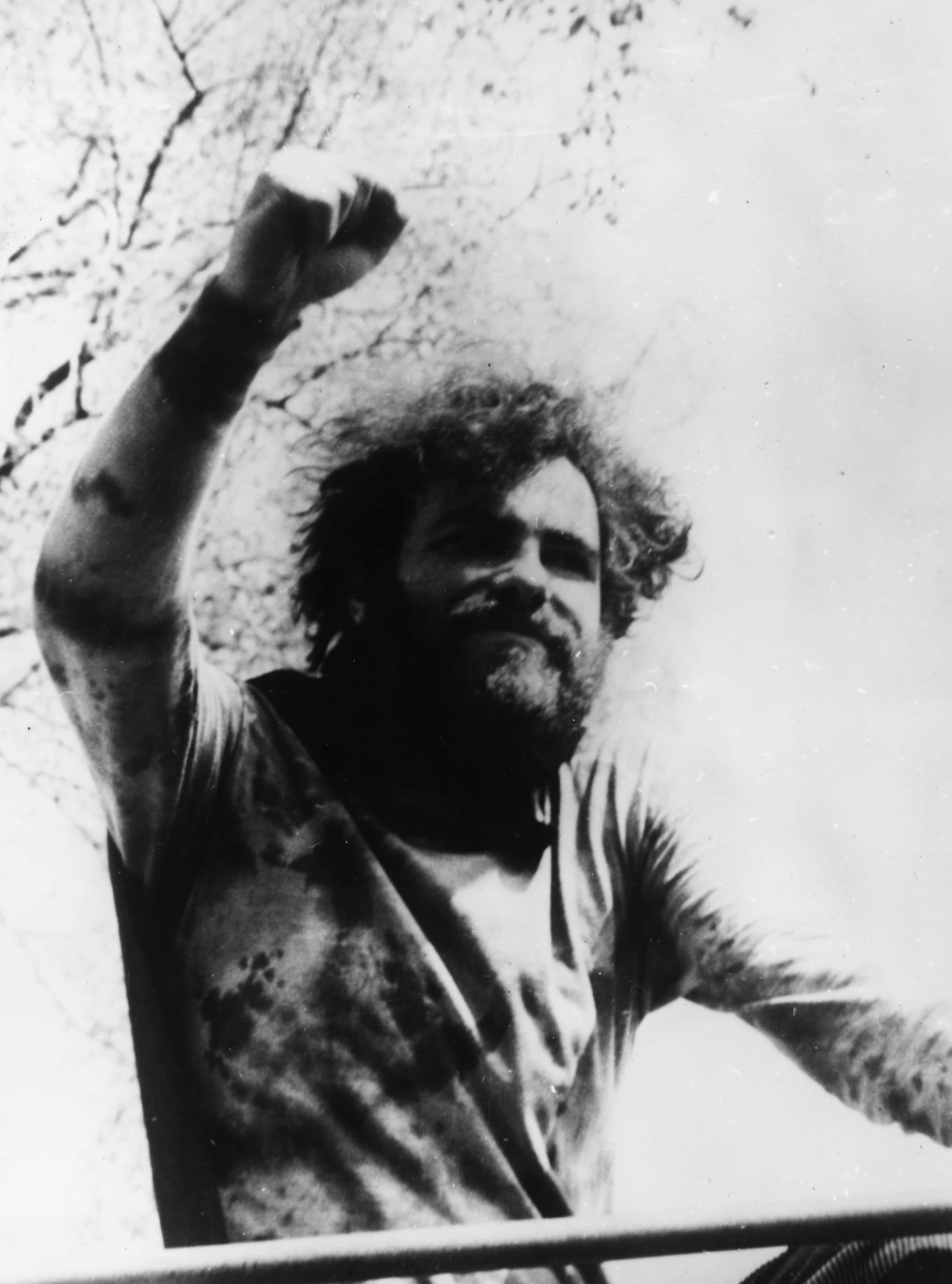
The Court
The judge then declared all five of them to be committed to the custody of the Attorney General of the United States for imprisonment for a term of five years. Further, a fine of $5,000 and costs of prosecution were imposed. Cutting him off, Hoffman mocked him, “Five thousand dollars, Judge? Could you make that three-fifty? How about three and a half?”
Kunstler then tried to make a statement at the end saying, “After listening to them a few moments ago we know that what they have said here has more meaning and will be longer remembered than any words said by us or by you... We feel that if you could even begin to understand that simple fact, then their triumph would have been as overwhelming today as is our belief — ” However, judge Hoffman stopped him midsentence and said, “I gave you an opportunity to speak at the very beginning. You said counsel did not desire to speak.”
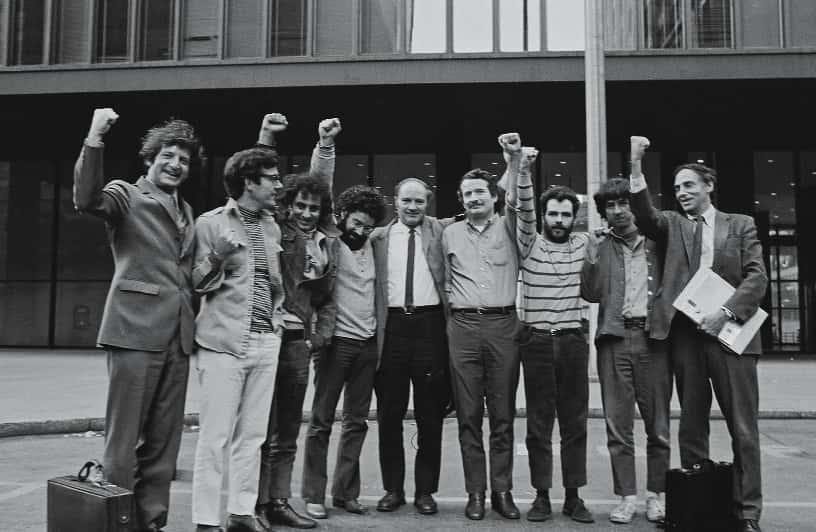
At the end of the case, Abbie Hoffman, Tom Hayden, David Dellinger, Jerry Rubin, and Rennie Davis were found guilty of incitement to riot and sentenced to 5 years each in federal prison. The verdict was reversed by the Seventh Circuit Court of Appeals and a new trial was ordered. But, the US Attorney declined to retry the case. Meanwhile, lawyer William Kunstler was charged with 24 counts of contempt of court.
The rousing and invigorating film shouts out in the end: “The whole world is watching!” Yes, it is. And then you think: “Maybe that’s what we are. An accidental spectacle.”
‘The Trial of the Chicago 7’ premieres October 16, 2020 on Netflix.





